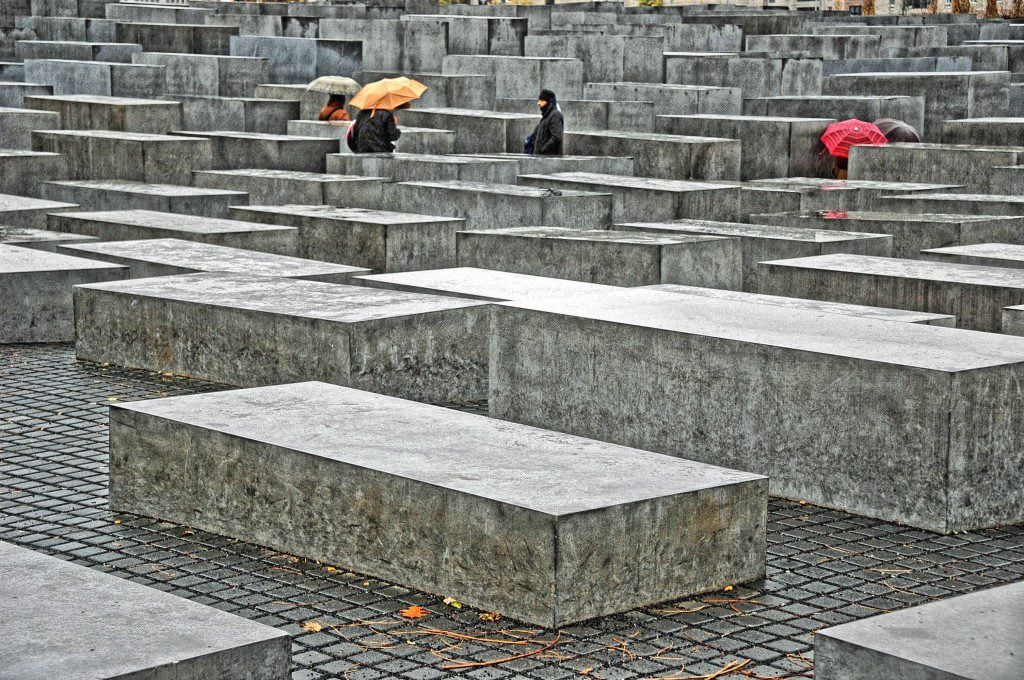(This is a sort of post that I haven’t written in a while, in which I just summarize a book I’ve read, as much for my own benefit in digesting, and later remembering the book, as anything else.)
So I initially passed on this book because I thought it would be like the Goldhagen “Hitler’s Willing Executioners,” in which the Germans were, by their very Germanness, antisemetic murders, every last one.
But it’s actually much different than that. McMillan digs back into German history, to a far greater degree than the “harsh Treaty of Versailles caused WWII,” and pulls out various elements which combined together to produce the Holocaust.
National Disunity
To begin with, Germany, unlike France or Britain, made it all the way to 1918 as an empire with a parliament with only an advisory capacity, rather than a parliamentary democracy. While Germany had a parliament, it had very little power relative to a true parliamentary democracy. Why didn’t Germany transition to a democracy earlier? Partly because it industrialized later than Britain or France, and, accordingly, developed a middle class, and upper middle class, later — historically the driver of democracy. What’s more, Germany only became a unified country until 1871, and the drive of the Liberals for reform was defused by Bismark’s achievement of unification.
In the years that followed, a political party system developed in Germany, but there was too much division among the parties for them to band together to press for greater democracy. Due to the late and rapid industrialization, as well as the separate developments of the political entities prior to unification, the landed aristocracy was more reactionary than elsewhere, and the working class was more socialist, with further divisions between Protestants and Catholics. What’s more, the socialists were seen as such a threat that the elites feared democracy due to the risk of giving them political power.
In order to avoid political change, elites instead attempted to unify the splintered Germans with nationalism. (Well, on this point, McMillan says he can’t prove this, exactly, but thinks it’s a pretty good explanation for the developments he describes.) There was a movement towards colonization, though Germany was kind of “stuck,” with potential colonies having already been gobbled up, but this manifested itself in persecution of the Polish minority in eastern Prussia (that is, the region that was formerly part of Poland until it was partitioned), as well as notions of racial superiority. Even upon entry into World War I, the elites believed that the war would unite Germans and solve the problem of political divisions — and, to a degree, this worked.
World War I
McMillan’s point about the impact of World War I is not the humiliation of the Treaty of Versailles, but the impact of the battles, and the repeated unrelenting bloodshed, upon the men who fought them. Some men were broken by the war, others emerged with a hatred of war, but a significant minority “came to love the fighting and . . . gloried in the ways it had transformed them.” “The ghastly battlefields and massive slaughter of World War I produced a generation of violent and hardened men, men who could accept hte deaths of millions as a normal fact of political life.” This fact alone didn’t cause the Holocaust, but combined with other factors.
The Weimer Republic Period
During the War, there was initially a tremendous national unity. But as the war continued, Germans, espeically the working class, suffered greatly, leading to the revolution of 1918, which by unfortunate coincidence occurred at the same time as the German military recognized that the war was lost and sued for peace. This in itself left the fledgling government vulnerable to accusations of betrayal. What’s more, several significant political parties didn’t even support the new democracy, and, during the early 1920s, there were assassinations and riots, not to mention the hyperinflation of 1923. Even though in the late 20s, the situation had stablized, the government never really had legitimacy, acceptance by the large majority of the people, with reactionaries on the right and a large number of communists on the left, feared by the middle class. Hitler didn’t take over a functioning stable democratic state that just happened to have fallen on economic hard times. In 1932, Germany’s president, Paul von Hindenburg, was already aiming to destroy parliamentary democracy, and his prime minister, Heinrich Bruning, was already governing by emergency decree; when Hitler was named Prime Minister, this was the end result of a series of machinations to avoid including the Socialists in a governing coalition.
The idea of The Leader
Why Hitler? In part, because Germans were expecting a great leader to, well, lead them, as part of the ideals of German nationalism. What’s more, Hitler had a series of lucky breaks. His plans to build up the German military had the fortuitious side effect of helping the German economy. Each of the series of provocative actions in the period before all-out war — the reinstitution of the draft and increases in the military beyond Versailles-prescribed limits, the re-militarization of the Rhineland, the Anschluss of Austria, the annexation of the Sudetenland — was greeted with celebrations by the Germans when it didn’t produce war, or any reaction at all, by France and Germany. The victory over France in 1940 was just as “magical,” though here Germany had a very lucky break: the initial invasion plan was exactly what the French and British expected (no, not across the Maginot Line, but through Holland); it was only when the invasion was delayed from Fall 1939 to Spring 1940, that two generals proposed an alternative, through the Ardennes forest where the Allies wouldn’t expect it.
Over time, Hitler was worshipped in a quasi-religious fashion. In addition, “over time he became the sole source of legal authority in Germany,” and unconditional loyalty to Hitler became the prime value. This “demigod” status meant that Hitler’s orders, or the effort to please Hitler, overrode any normal moral values.
What’s more, the chaos of German government meant that Hitler’s subordinates not only faithfully implemented orders, but tripped over themselves implementing an order, or meeting a desire.
Why the Jews?
This is perhaps the least “new” material. Antisemitism had had a long and terrible history, though at the time that Hitler took power, German Jews were, economically, on average, quite successful, for example constituting 15% of Germany’s lawyers and 11% of its doctors, even though they were less than 1% of the population. This inspired envy and “nourished theories of a Jewish conspiracy by creating the illusion of ‘Jewish influence.'” At the same time, Jews were accused of instigating Marxism. There was also a developing belief in Jewish conspiracy aimed at World Domination, firmly entrenched long before Hitler came to power, and these theories enjoyed a new respectability in Germany after World War I, when the Jews became a scapegoat for the loss of the war.
Of course, Germany was not the only antisemitic country — a history of pogroms in Russia and the Ukraine, as well as growing discrimination in 1930s Poland meant that the Germans had no difficulty finding locals willing to collaborate. And most Germans were not rabidly antisemitic, but had a certain unease which meant that, especially after the Jews were isolated in the 1930s, they simply didn’t get all too upset at the deportations.
On top of which, in the early part of the 20th century, and especially in the 1930s and 1940s, and not juts in Germany, “racism” was more than just discrimination, but was a “scientific” theory of racial superiority, coming out of Darwinian thought. (It was the same impulse that led to Eugenics, and forced sterilization in the U.S.)
The Absent Moral Compass
But here’s a key paragraph from this chapter: “To explain why thousands of ordinary Germans — not to mention ordinary Turks, Cambodians, Rwandans, and a few Americans — have committed mass murder, psychologist and historians have studied a cluster of three closely related human behaviors: automatic obedience to authority; conformity to the behavior of a group; and adaptation to a role and situatoin.”
In the case of the Germans, they knew, to greater or lesser degrees, that Jews were being murdered. But they had their own concerns, such as bombed out cities and other hardships of war. In addition, there was a “diffusion of the sense of responsibility that comes when a large number of people know about some kind of harm. Each person can easily feel that if many people know, then one’s own hsare of the collective responsibility is small. If the entire nation has knowledge, each individual’s responsibility is insignificant: if all are responsible, no one is responsible.
I’m tired!
So that took a long time to summarize (and, rereading, I see that I completely skipped the discussion of “was the Holocaust unique”?). But I think it’s a very worthwhile book. Do the specific circumstances of Nazi Germany mean this could never happen here? If his ideas are correct, then it’s actually a pretty comforting set of ideas. And that’s all for tonight!











